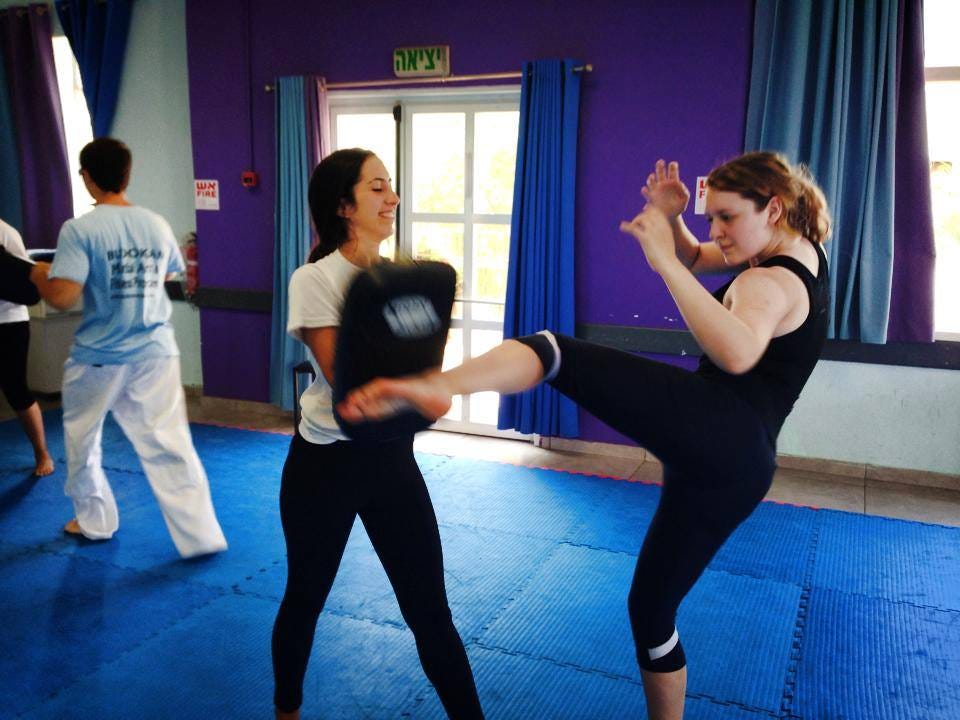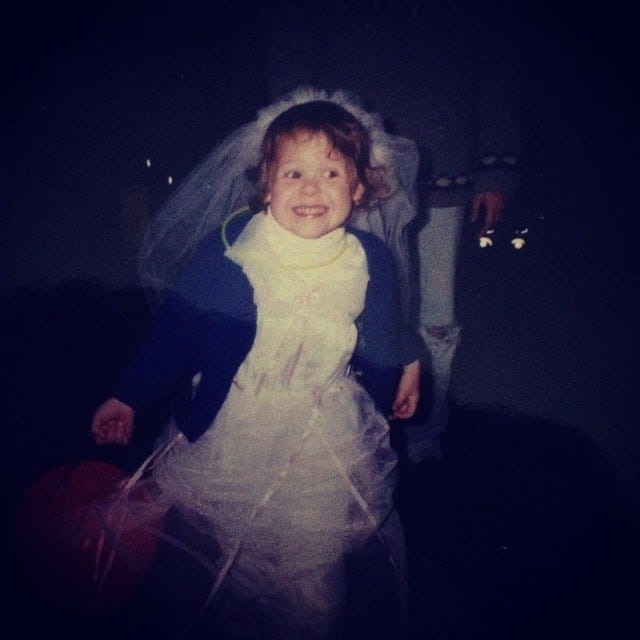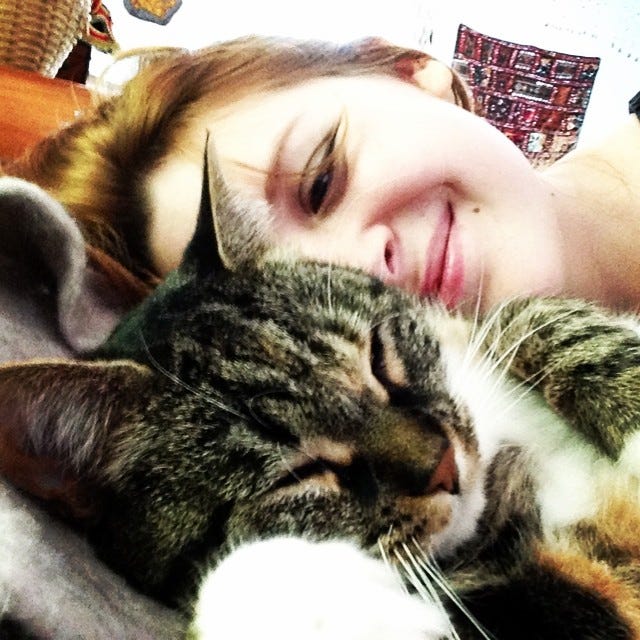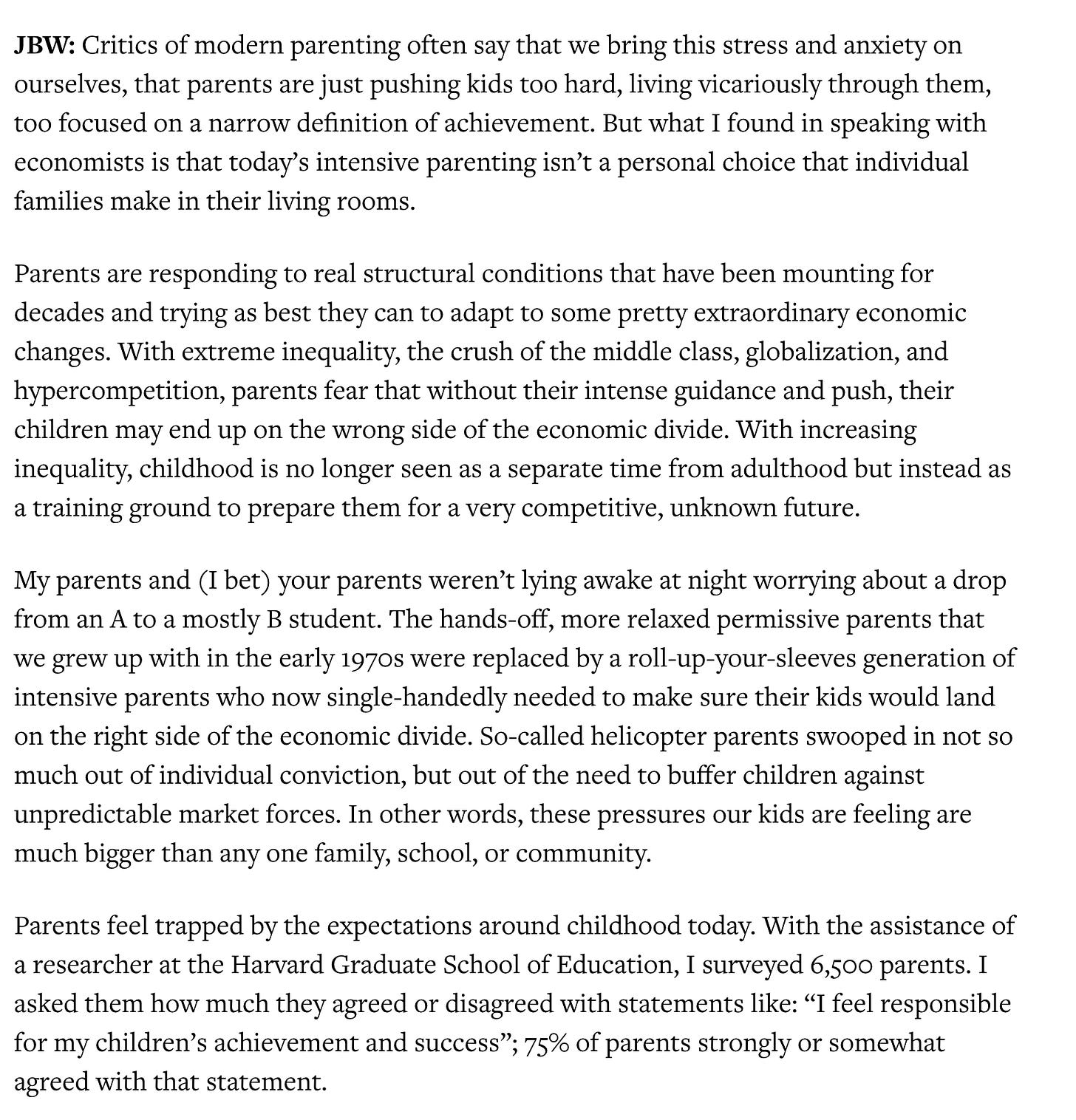When my daughter, Em, was a kid and young adult, she often went adventuring in ways that some other parents couldn’t understand. In seventh grade, she was lucky enough to go to a Hollywood stunt camp, jumping off roofs and moving ATVs. When she was 14, she went to NYC for what I thought was a camp, but wasn’t quite a camp. In high school, she went to Costa Rica where her passport was stolen. She went to Israel during a missile flare up and sheltered under stairs, calming down the other kids. She went to the state police’s junior development camp. And after college she went into the army for a bit. She’s in the reserves now. She goes solo hiking in Norway, Iceland, has travelled throughout Asia, Europe and the American West without me and on her own dime.
I’ll always remember another mom berating me on Facebook for allowing Em to do the things she wanted. She wasn’t the only one who snuck into my DMs to do so.
“How do you live with yourself?” she asked.
And I didn’t know—and I still don’t know—how I could live with myself if I didn’t allow Em to live out her dreams and adventures, which I told that mom. She didn’t get it.
To her, letting her child out of her sight meant that her child was in danger. To let her child participate in a program or go to another country or a city? To let her do gymnastics? Hike alone? That was child endangerment even when the “child” was in high school or college or after.
Those things? Em picked those things to do, chose them because they intrigued her or because she had a passion to learn them or a needed adrenalin rush.
The mom was not alone in questioning my “you live your own life” attitude toward parenting or my focus on Em being a happy person and a kind person rather than a high-achieving person. Em has somehow ended up being all three despite my best efforts to make her chill.
One of the big things Em says to me is that I never push her hard enough. And I always respond, “You already do that to yourself, buddy.”
The thing is that with kids you always wonder if you should have done things differently, tried different ways of parenting, but the way I raised Em was to let her be her own person and not be my person if that makes sense. I want her to live her life for herself and not for me and for my needs.
Apparently this might be a little weird. Who knew?
Jennifer Breheny Wallace’s Never Enough: When Achievement Culture Becomes Toxic—And What We Can Do About It says that a lot of parents are wrapped up in their kids’ achievements. Their child’s achievements become a part of their own identity. But a couple of recent reports show that achievement culture among the country’s top 20-25% income brackets is actually hurting kids’ health and wellness.
MARYAM ABDULLAH writes for the Greater Good,
“A 2018 report by the influential public health and policy experts at the Robert Wood Johnson Foundation (RWJF) had come to a similar conclusion when it named the top four environmental conditions negatively impacting adolescent wellness. Among them were poverty, trauma, discrimination, and “excessive pressure to excel.” According to the RWJF report, a “family and/or school environment characterized by extreme pressure to succeed or to outdo everyone else—often, but not exclusively, occurring in especially affluent communities—can affect youth in significantly deleterious ways, including causing high levels of stress and anxiety or alcohol and drug use and dependence.”“The majority of these students come from families within the roughly top 20 to 25% of household incomes, a dollar amount that varies depending on where you live and how big your family is, but an income level that roughly starts around $130,000. Of course, not all students attending these competitive schools are suffering, but these two important reports made it clear that a disproportionately high number of these students are experiencing negative health outcomes, like anxiety, depression, and substance use disorders, compared to their middle-class peers.”
Wallace actually found that students thought their parents “valued and appreciated them” to a greater extent if they had school success. That was about 70% of respondents in a survey of 18 to 30 year olds. Half said their parents love increased when their success increased.
That’s all about perfectionism. It’s about pressure. It’s about connecting love to achievement. In an interview between the two women, Wallace says,
That entire excerpt terrifies me because what if by not focusing on achievement I didn’t prepare Em for the structural inequalities and issues with the world? But it also makes me so sad because of that last bit: “I feel responsible for my children’s achievement and success.”
Is that the kind of society we want to live in? I don’t think so. I think we need a new way.
I know I’m not responsible for my kids’ successes. I have two vastly different children now since I’m Xane’s bonus mom and these two young humans have vastly different ideas about achievement and success. Sometimes success is just getting out of the bed and into the shower.
I can love them both, model independence and kindness, and hope that they follow paths that make them happy and that include empathy and kindness, but I can’t make them that way, make them choose their paths.
Yeah, that’s sort of scary in a world where there is such extreme inequality and hypercompetition, but it’s okay, too. It’s only by knowing what we face and allowing individuals to face it and/or change it and/or not face it at all that we allow people to be free to be who they are, not who we want them to be. You can’t live in constant fear. That’s no way to be free. Not for us and not for our kids.
*Also there are no Xane photos in here because Xane like to be in control of their image online, which is totally cool, but just so you don’t think I’m deliberately not showing them too. :)










Your daughter is great as because she has get the huge support & encourage from her parents
Bravo! As parents we are to encourage and support the healthy things our children are interested in, no matter how brief the interest. We are to be their biggest cheerleader. When I came home saying I wanted to play drums in the school band, but was told girls don't play drums, my dad bought me a practice pad and drumsticks. When your daughter comes home and says she is going to National Camp School to become a Shooting Sport instructor, you pick your jaw up off the floor and support her; she outshot all the guys in her class. Encourage, encourage and praise the effort and lessons learned at failed attempts.